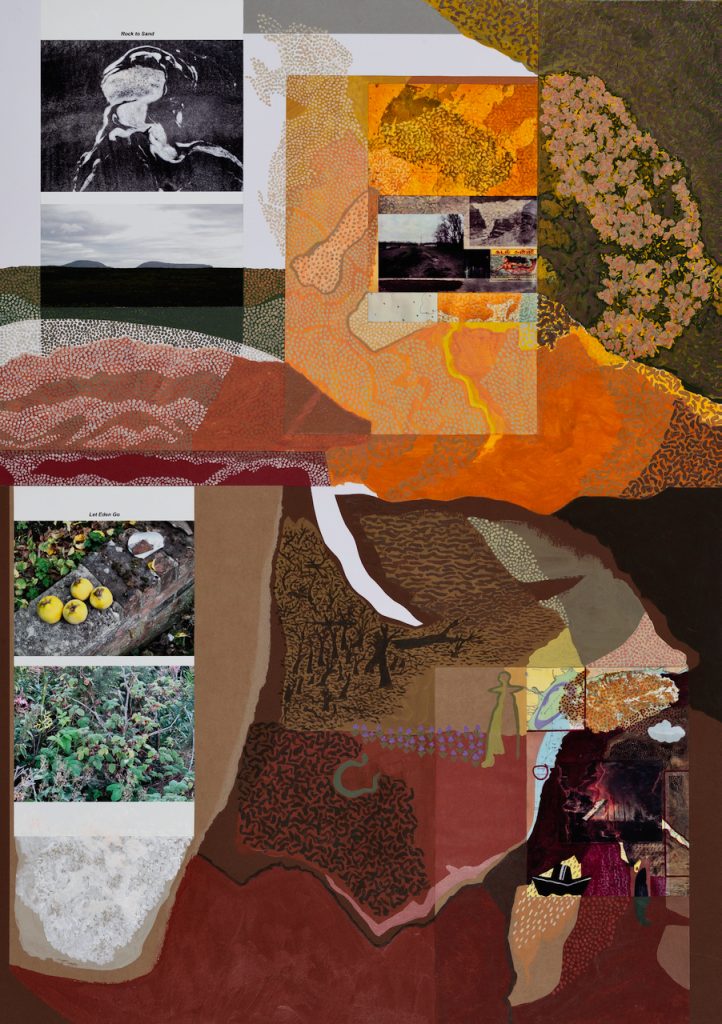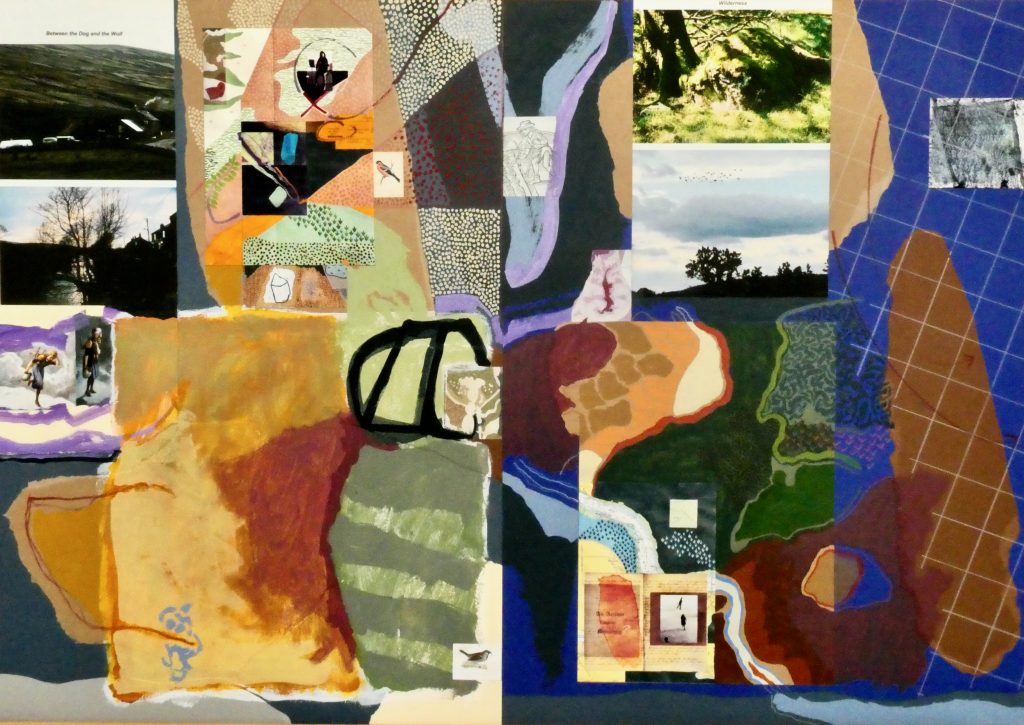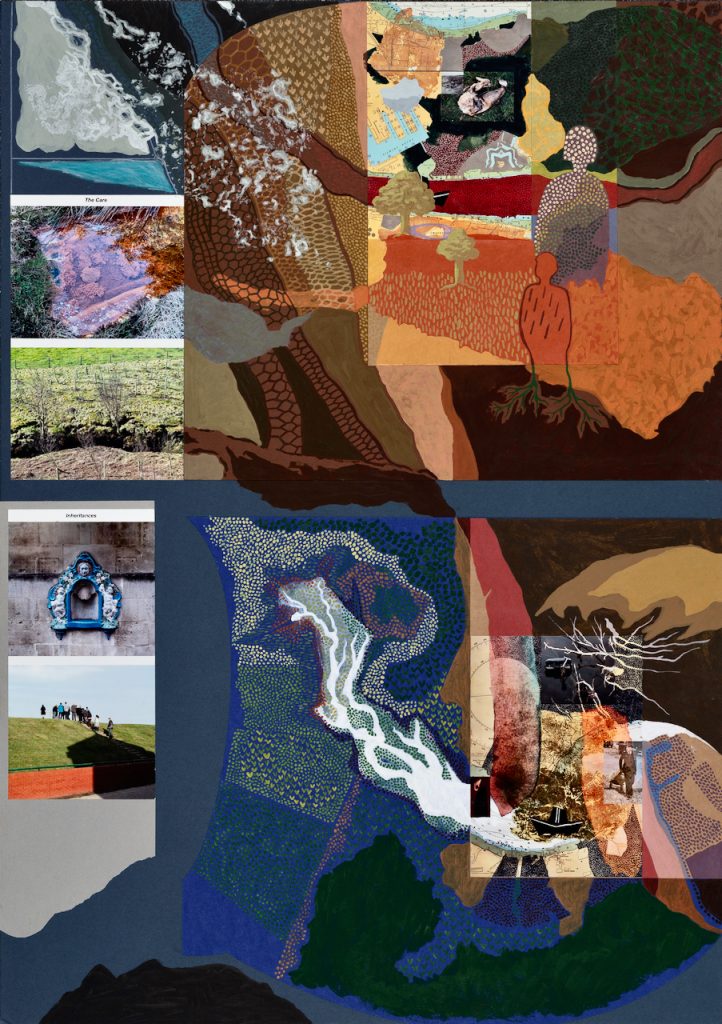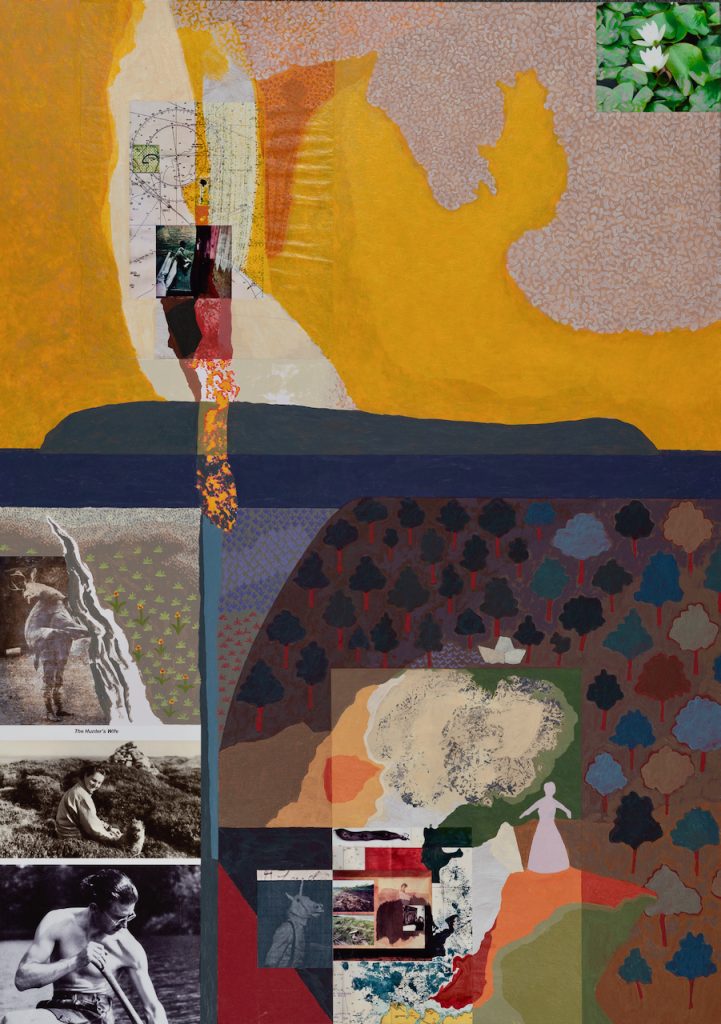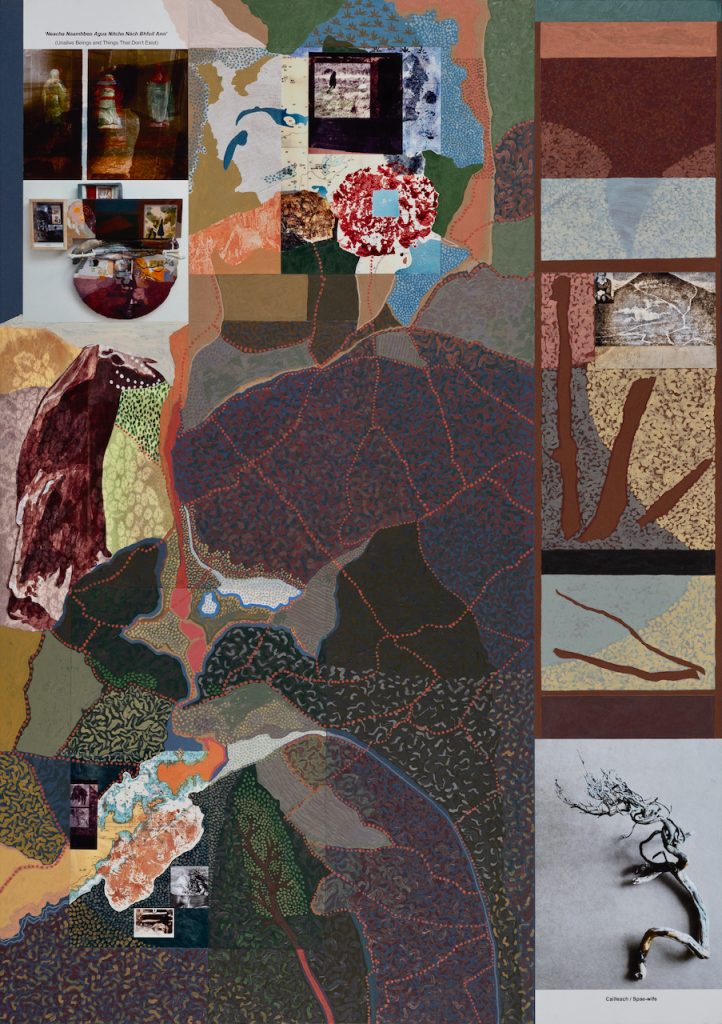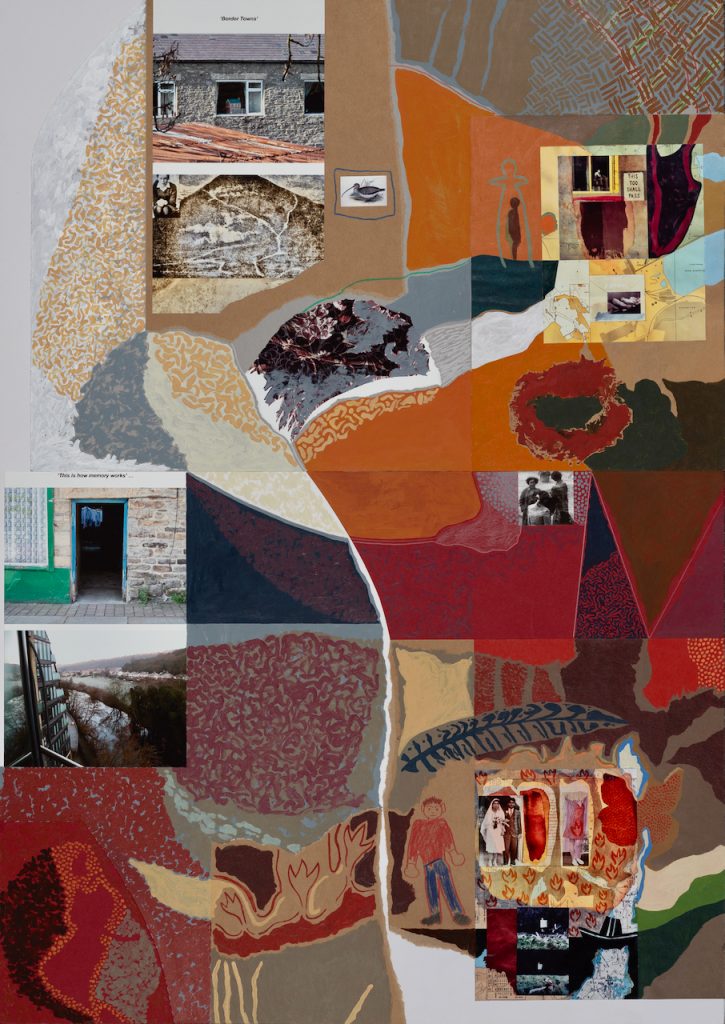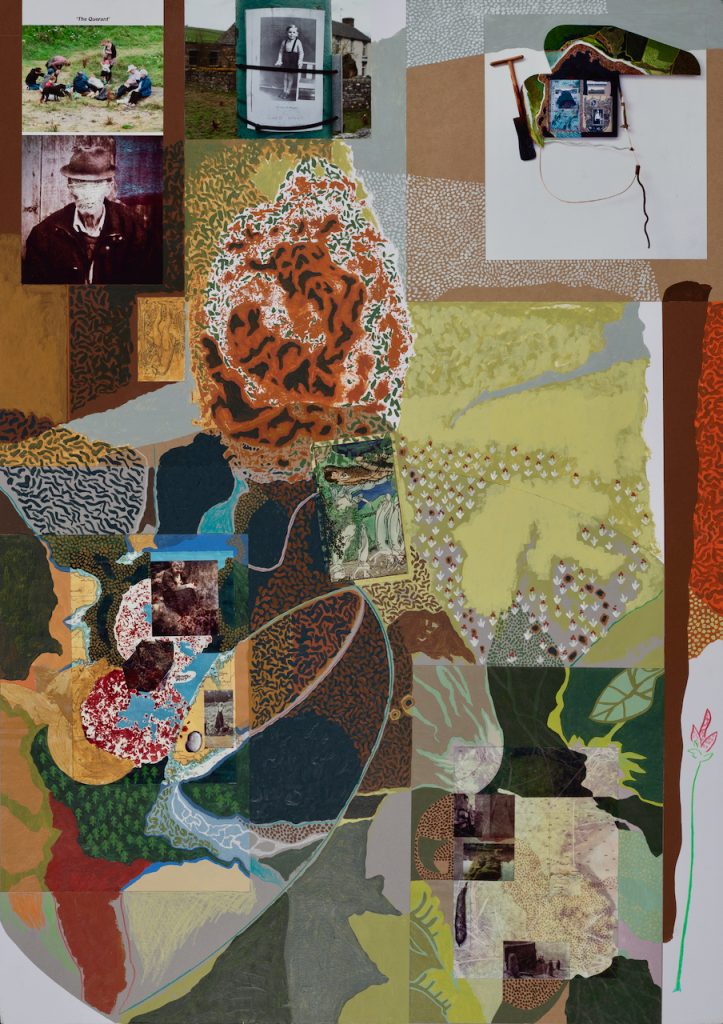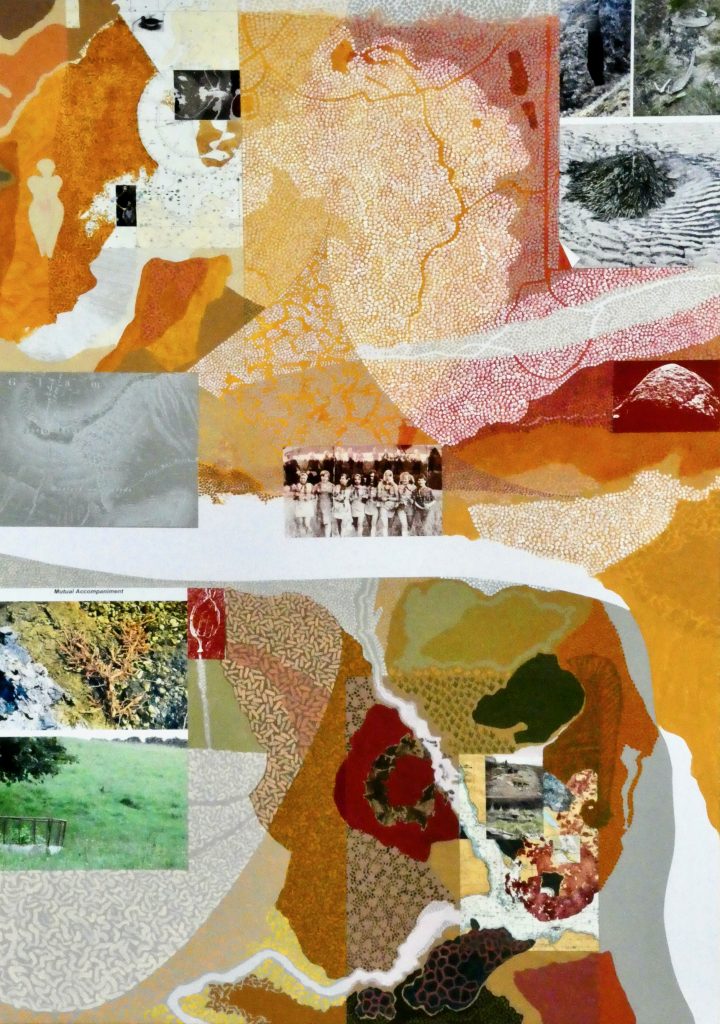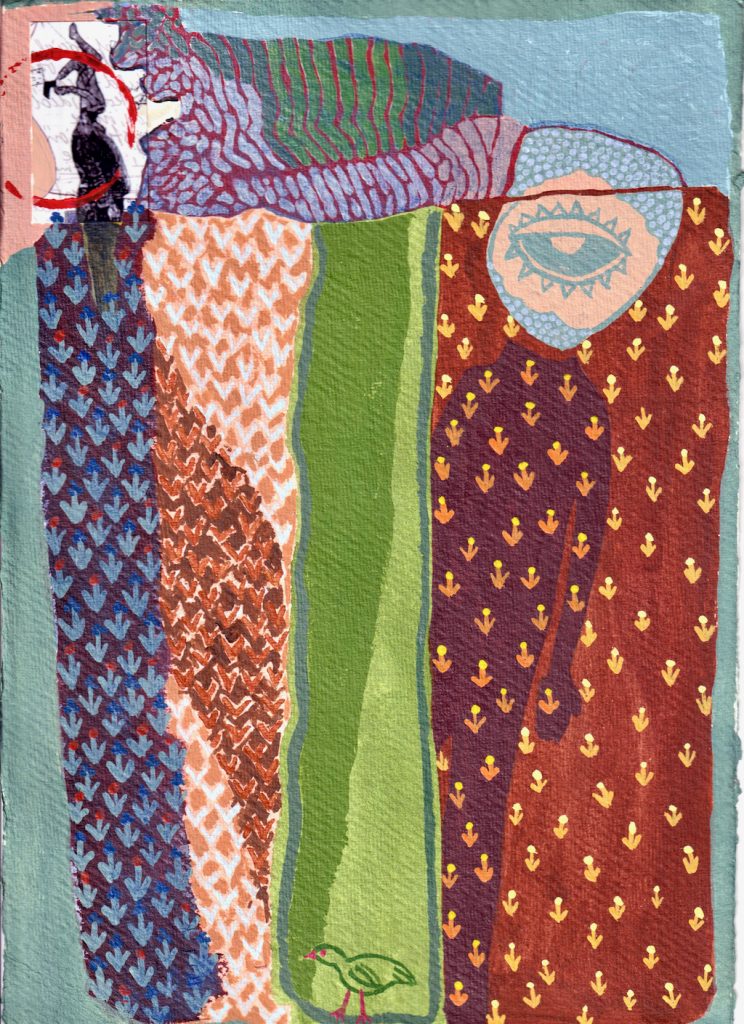
‘Listen: you are not yourself, you are crowds of others, you are as leaky a vessel as was ever made, you have spent vast amounts of your life as someone else, as people who died long ago, as people who never lived, as strangers you never met’.
Rebecca Solnit The Faraway Nearby pp. 248 -9.
I have made twenty-two postcards for Utopias Bach. Although as images and texts the cards reflect personal concerns, many of these concerns are shared and relate to the Values and Questions section on the Utopias Bach web site – https://www.utopiasbach.org (Quotes from which are marked throughout simply “UB”). Some cards also raise questions that have been with me a long time, about inspiration in relation to the historical status of women, particularly as these questions may relate to the present and to groups like Utopias Bach.
I will “post” a new card on this site each day for the next twenty-one days.
For many years I worked in the space where place, memory, identity, and landscape meet. I started out understanding landscape as it’s used by ‘aesthetes, antiquarians and landed gentry’ but at some point I came across an earlier usage, one that corresponds to Landschaft: ‘a sheaf, a patch of cultivated ground, something small-scale that corresponded to a peasant’s perception, a mere fragment of a feudal estate, an inset in a Breughel landscape’. (Barbara Bender Landscape: Politics and Perspectives p. 2). A small, cared-for place, perhaps potentially a model for Utopias Bach? So this sense of “landscape” is my starting-point, but modified, used in Rebecca Solnit’s sense of ‘human psyches as landscapes’. (Rebecca Solnit The Faraway Nearby p. 25). The site of a folding together of questions: of place, memory, and identity, particularly as concentrated through poetry. So twenty-two postcards as reports of field-walking in psychic hinterlands.
Some sections of text would be far too long to fit on the back of a postcard. They have to be imagined as written in very small, almost microscopic, handwriting.
Best wishes,
Iain
